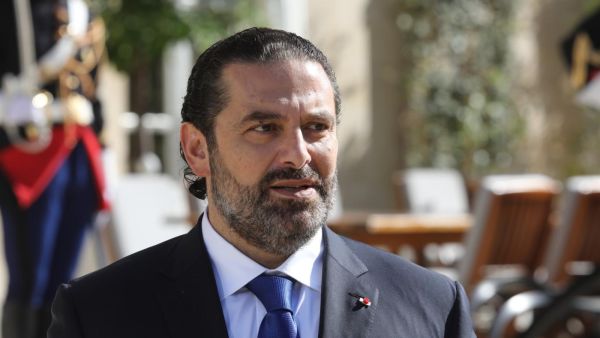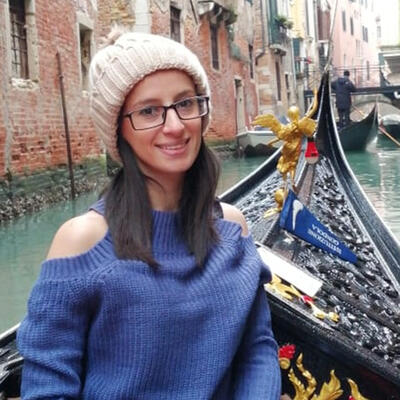Prime Minister-designate Saad Hariri is scrambling to form an 18-member Cabinet of nonpartisan specialists to deliver urgent reforms ahead of a new visit to Lebanon by French President Emmanuel Macron later this month, political sources said Tuesday.
“Prime Minister Hariri and Lebanon’s political factions are coming under growing French pressure to speed up the formation of a new government ahead of President Macron’s visit to Beirut,” a political source familiar with the Cabinet formation process told The Daily Star.
#الحريري_غازي_رستم
— Lakkis J (@j_lakkis) December 6, 2020
Sooo generous is saad hariri ??? it's better for him to keep playing on his playstation. pic.twitter.com/zWLsiW1I1j
“Despite differences over the shape of the new Cabinet, Hariri’s meeting with Aoun Monday, the first in three weeks, was viewed in the context of accelerating the formation (process),” the source said
Macron is scheduled to visit Beirut on Dec. 21-23, marking his third trip to the crises-stricken country since the massive Aug. 4 blast that devastated Beirut’s port and left large areas of the capital in ruins, in the biggest explosion in Lebanon’s history. Macron was the first foreign leader to visit Beirut two days after the port disaster.
In addition to inspecting French troops serving with the UN peacekeeping force in south Lebanon, UNIFIL, Macron was expected to meet again with Lebanon’s rival political leaders to press them to agree on the swift formation of a “mission” government to enact reforms needed to unlock foreign financial aid.
The formation of a “mission” government made up of nonpartisan experts to implement structural reforms is stipulated in the French initiative that Macron presented to Lebanese political leaders during his second visit to Beirut on Sept. 1. Implementation of long-overdue reforms is deemed essential to releasing billions of dollars in promised international aid to the cash-strapped country, which is teetering on the verge of a total economic collapse.
However, the French initiative, designed to lift Lebanon out of its worst economic and financial crisis since the 1975-90 Civil War, has stumbled as political rivals haggled over shares in the new government.
Hariri, backed as prime minister by France and regional powers, is set to hold what local media described as a “decisive” meeting Wednesday with President Michel Aoun on the Cabinet formation process, two days after the two leaders relaunched the stalled process following a three-week standstill.
Although Aoun and Hariri discussed during their meeting Monday names of potential ministers, including Christian ministers, and the distribution of ministerial portfolios among various sects, no major breakthrough was made in the weekslong Cabinet formation impasse.
Contrary to wide expectations, Hariri did not present a draft Cabinet lineup to Aoun. Monday’s was the first meeting between Hariri and Aoun in three weeks after differences over the naming of Christian ministers in the next government, and the president’s demand, backed by the Free Patriotic Movement headed by MP Gebran Bassil, for the adoption of unified criteria in the process brought the formation efforts to a halt. Hariri’s attempts to form a new Cabinet have also been stymied by the rival parties’ jockeying for key ministerial posts.
“Tomorrow’s meeting between President Aoun and Prime Minister Hariri promises to be decisive with regard to breaking the Cabinet formation deadlock,” Future Movement MP Mohammad Hajjar told The Daily Star Tuesday.
He confirmed that French and foreign pressures were piling up on Lebanon to quickly form a new government. “Hariri is seeking to form a mission government of nonpartisan specialists soonest to carry out the required reforms outlined in the French initiative,” Hajjar said.
MP Wael Abu Faour from the Progressive Socialist Party headed by Walid Joumblatt said Macron’s visit to Beirut might help resolve the Cabinet formation crisis.
Speaking in a TV interview Tuesday, Abu Faour said he expected Hariri to present Aoun with a draft Cabinet lineup in the next two days. “We hope the Cabinet lineup will cause a positive shock internally and fulfill the demands of the people who want to help Lebanon,” he said, clearly referring to international donors who have linked their assistance to Lebanon to the implementation of reforms.
“We insist that the Cabinet be made up of nonpartisan specialists and to have balanced fair representation,” Abu Faour said.
Hariri’s disagreement with Aoun over who would name the nine Christian ministers in the proposed 18-member Cabinet of specialists has raised fears that any proposed Cabinet lineup will be rejected by Aoun, a political source had told The Daily Star.
Lebanon has been without a government since Aug. 10 when then-Prime Minister Hassan Diab’s government resigned in the aftermath of the port explosion, although it stayed on in a caretaker capacity.
In addition to French pressure on Lebanese leaders, Egypt and the European Union also called for the quick formation of a new government to enact reforms.
“We call for the formation of a Lebanese government as soon as possible to overcome the crisis,” Egyptian President Abdel-Fattah al-Sisi told a joint news conference with Macron in Paris Monday. He vowed that Egypt would “never abandon our brothers in Lebanon.”
The EU Council urged Lebanese political forces to support the “urgent formation of a mission government that enjoys credibility, is subject to accountability in Lebanon and is capable of implementing the essential reforms,” according to a statement released Tuesday by the EU mission in Beirut.
The statement stressed that the EU’s assistance to the rebuilding of “a democratic, transparent, comprehensive and prosperous Lebanon remains contingent on noticeable progress in the essential reforms.”
“The European Union underlines the urgent need for the Lebanese authorities to carry out reforms in order to rebuild the international community’s confidence and create the circumstances that will attract support from investors,” the statement added.
The EU Council noticed with “increasing concern that the serious financial, economic, social and political crisis hitting Lebanon continued to worsen in the past months, while the Lebanese people are the first to suffer from growing difficulties the country is facing.”
“The European Union calls on political forces in Lebanon to listen to the people who are clearly expressing their ambitions and fears and to take their demands seriously and into consideration and implement reforms without further delay,” the statement said.
The EU welcomed the Dec. 2 international conference to drum up humanitarian aid to Lebanon following the port explosion. France and the United Nations, which organized the video conference in Paris, last week vowed to keep providing humanitarian aid to Lebanon but urged the country's leaders to form a new government to implement reforms.'
This article has been adapted from its original source.










